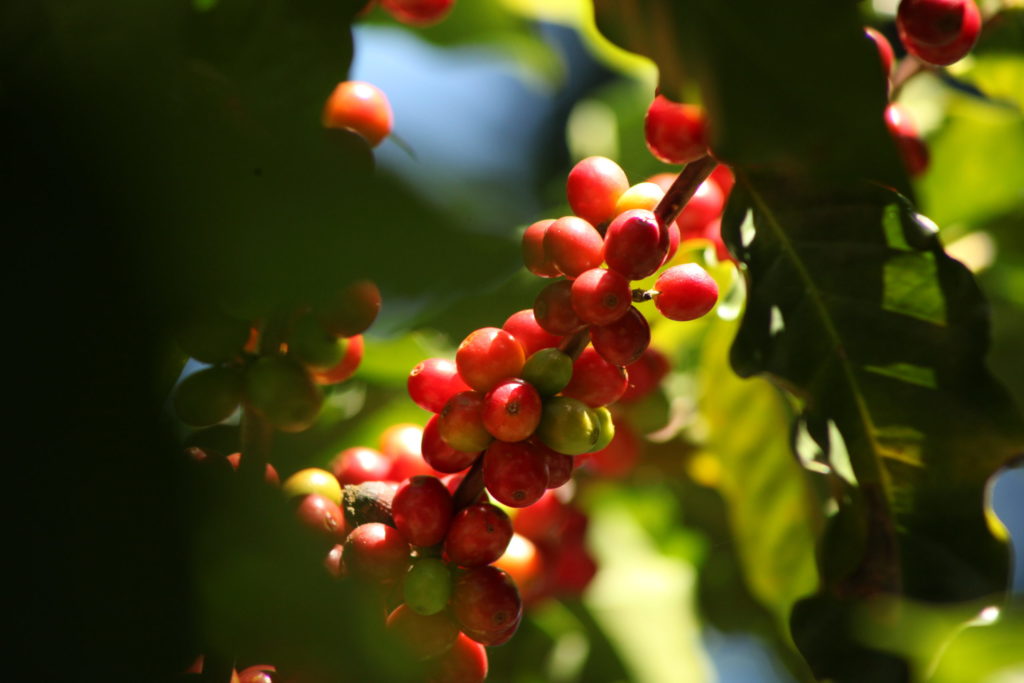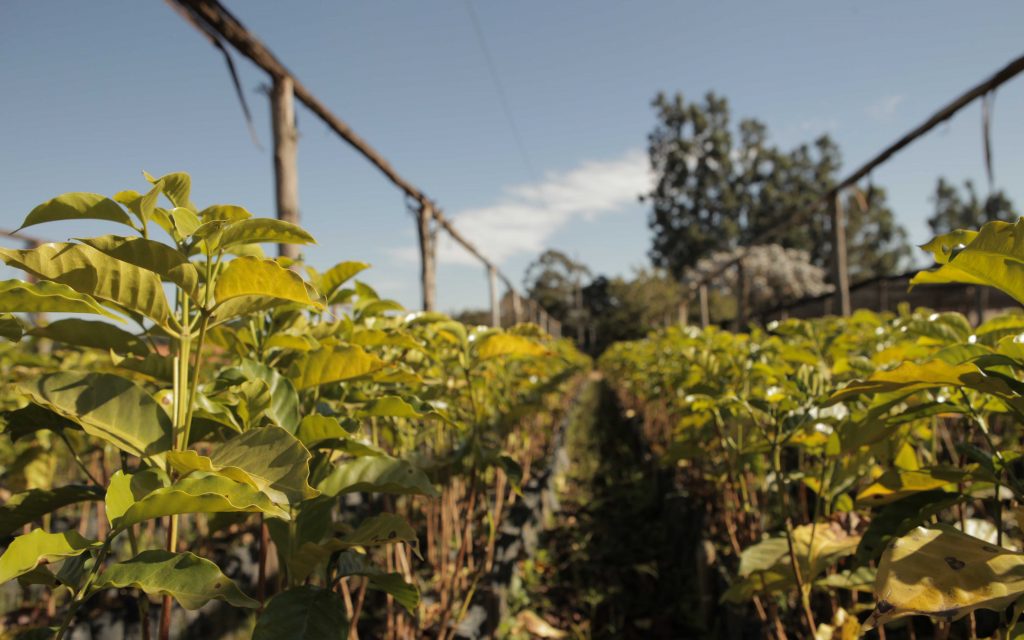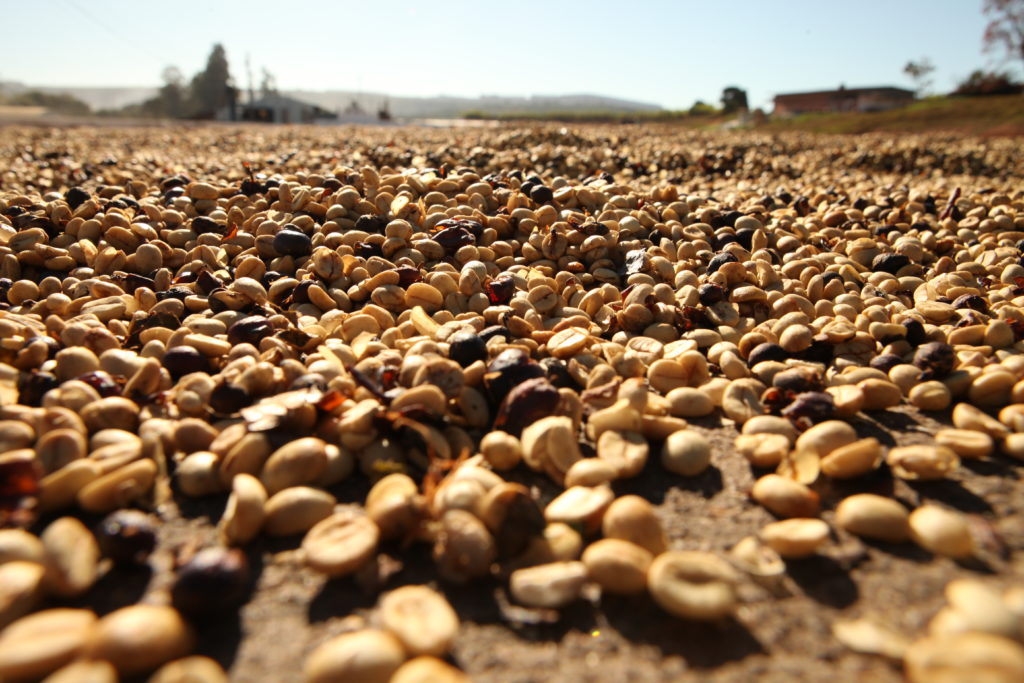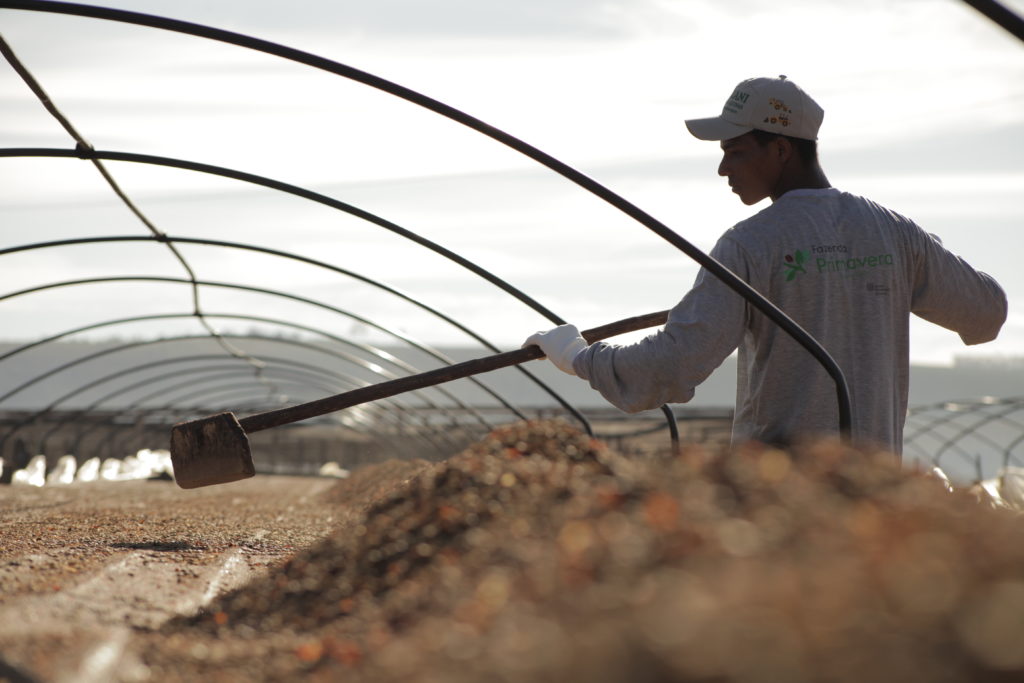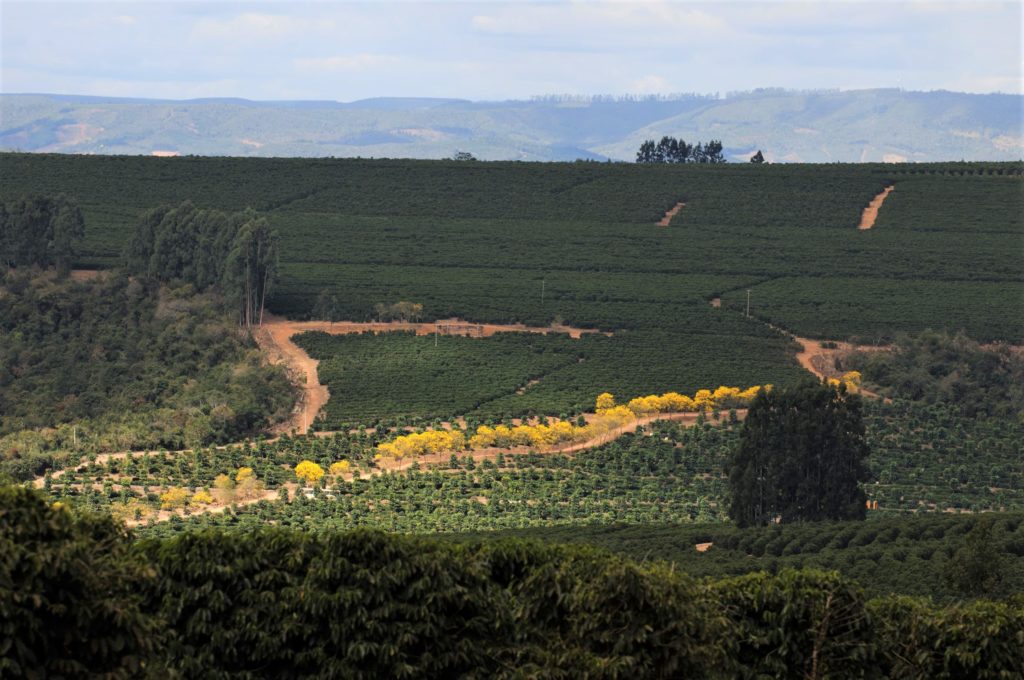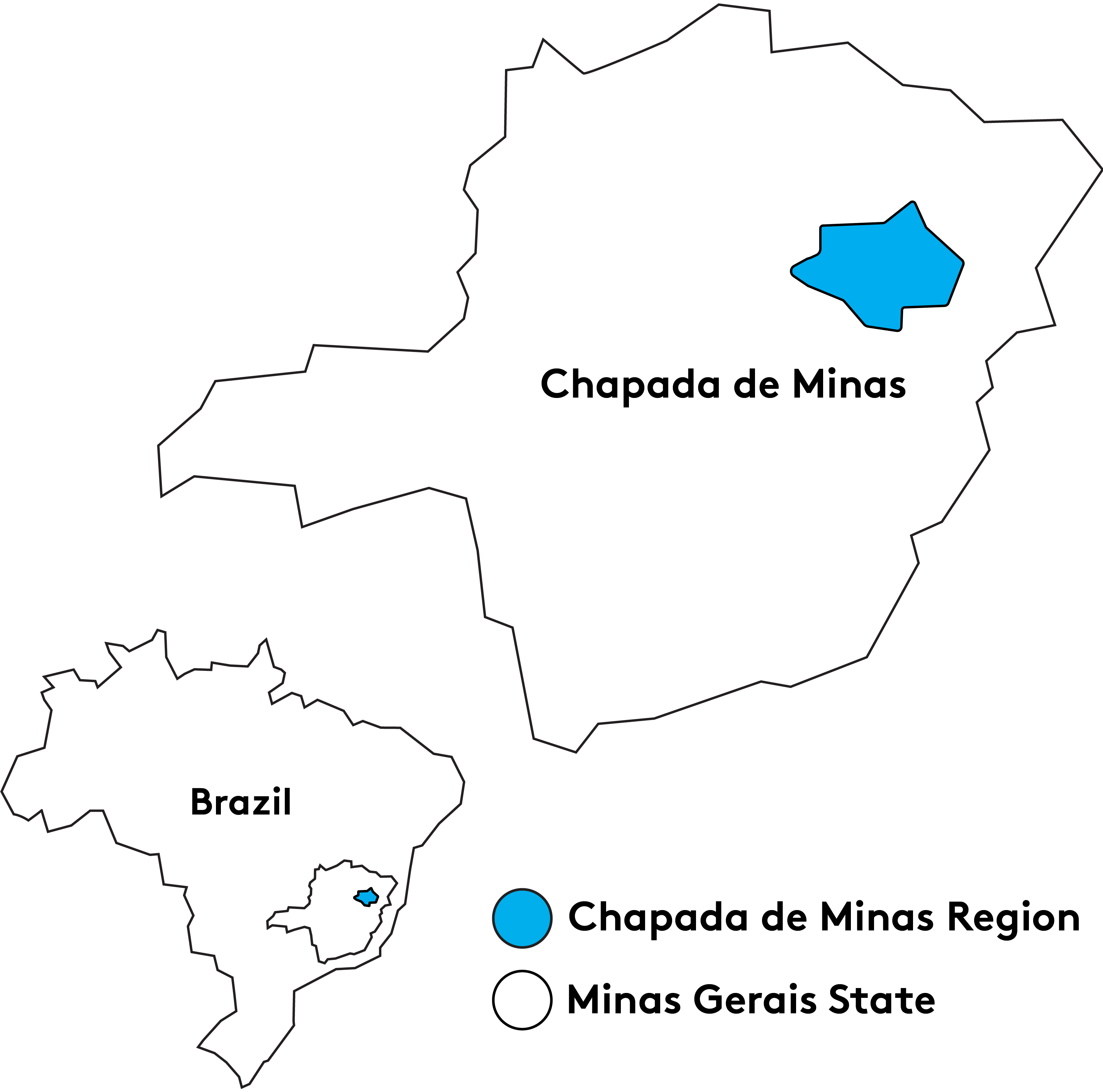Fazenda Primavera is located in the municipality of Angelândia, Minas Gerais. The region sits at the transition between biomes, with land and vegetation characteristic of both the Atlantic forest and the Cerrado. The farm’s elevation, 950–1050 meters, promotes the cultivation of specialty coffee and the climate provides favorable conditions with average temperatures between 20–24 °C annually and precipitation of 1,000–1,300 mm.
Fazenda Primavera has state-of-the-art installations including a 24,000 m² drying patio, 14 electric dryers, and equipment for processing Natural, Pulped Natural, Honey, and fully Washed coffees. The farm cultivates predominantly Red and Yellow Catuai though also includes several other varieties, including Topazio and Gesha.
Primavera has seen a transformation throughout its long history of traditional coffee production dating back to the 1970s. The 1,240 hectare farm is now planted with 670 hectares of coffee, producing 12,000 bags annually. Environmental sustainability has always been integral to the farm’s operations, incorporating production techniques to minimize environmental damage. A power plant on the farm recycles water used in depulping to produce energy for the farm, and coffee pulp is composted for use as natural fertilizer.
In 2022, Grupo Montesanto Tavares sold Fazenda Primavera and GMT Farms. Long time GMT Farms Operations Director and now one of the partners, Ronaldo Morais Pena Filho, continues to lead Primavera. “My family has been present in the coffee world since 1998, where I have worked with them since the first plantations in the North of Minas. In 2015, I joined the group at the invitation of Ricardo Tavares as General Manager and then took over the entire Operations Director of GMT Farms.”
Primavera’s agility in responding to new agricultural research and technology and to new trends in consumer preference is one of its main assets. For example, microlots are dried on raised beds, coffee is intercropped with shade trees on specially selected plots of the property, Honey processing eliminates the use of water, and coffee is evaluated constantly to find the best cup profiles. Primavera continues to keep an eye to the future, striving to lead the way for Brazilian specialty coffee.
This lot of Red Catuai coffee underwent Washed processing. Catuai was made by the Instituto Agronomico (IAC) of Sao Paulo State in Campinas, Brazil by crossing Mundo Novo and Caturra varieties. Catuai coffees are cultivated widely across Brazil, and are known for their high productivity potential.
